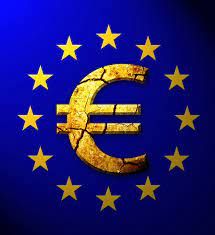As crypto gets more popular and has more wide usage cases in finance, game, fitness, administration etc., stronger pressure from authorities and conventional finance systems become huge as well.
Crypto now has lots of challenges from Tax, Money Laundering Policy, Privacy that may be very destructive to some core value of crypto such as Privacy and Decentralization.

The European Parliament could choose the way of regulatory overkill.
Recent European Union plans to curb the energy footprint of proof-of-work technology failed to get through the European Parliament when voted on in March.
But recently controversial anti-money laundering measure did pass and could now become law if governments also sign up.
Under a planned expansion of existing banking measures known as the Travel Rule, parties facilitating crypto transactions would have to identify participants.
EU lawmakers want that to apply even for the smallest payments or those made to unhosted wallets, where the asset is held by a private individual rather than a regulated exchange.
Proponents, including lead lawmaker Assita Kanko, have argued the travel rule will help cut crime, and it could be a spur for innovation in a sector that prides itself on creativity
“If the banking sector, that the crypto people think is actually boring and old, is surviving the travel rule … why would the very chic, cool crypto people not be able to do so?” she told CoinDesk shortly after the measure was voted through her committee on March 31. “They could work it out. ... I guess I'm telling them to try.”
This comment seems to be one of stupid comment.
This sort of low level understanding and irresponsible actions would take EU low position in blockchain and crypto competition with US and Asia.
In Paris, some point out that the existing rule, which requires institutions like banks to report any dodgy-looking payments to the authorities, doesn’t work well even in the conventional financial sector – and is even worse suited to blockchain-style tech.
The rules would mean crypto exchange providers must “provide a full report to the authorities when they see an unhosted wallet is involved, without even considering the threshold.
This rule might hurt crypto industry shortly preventing new comers join in this new trend who fear to reveal their private information.
But in the end, if you want to be mainstream, it needs to be regulated.
We are under this process making argument and discussion with authorities and traditional financial policy makers.
Source: Coindesk